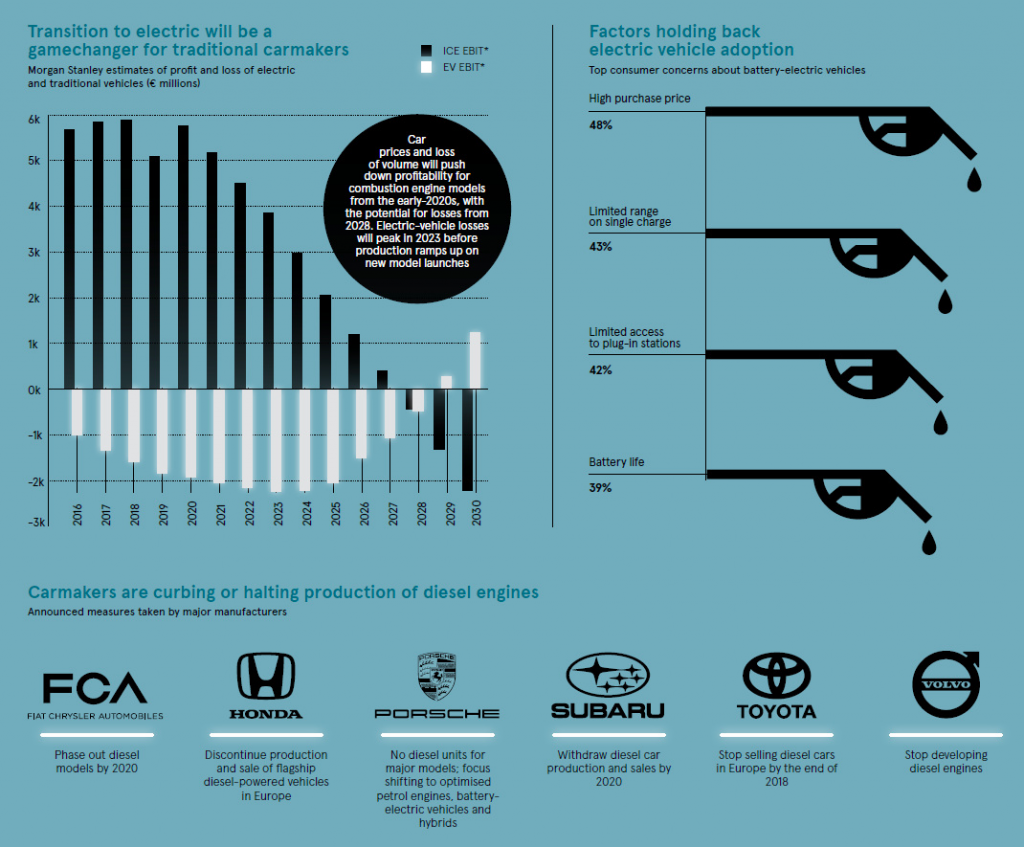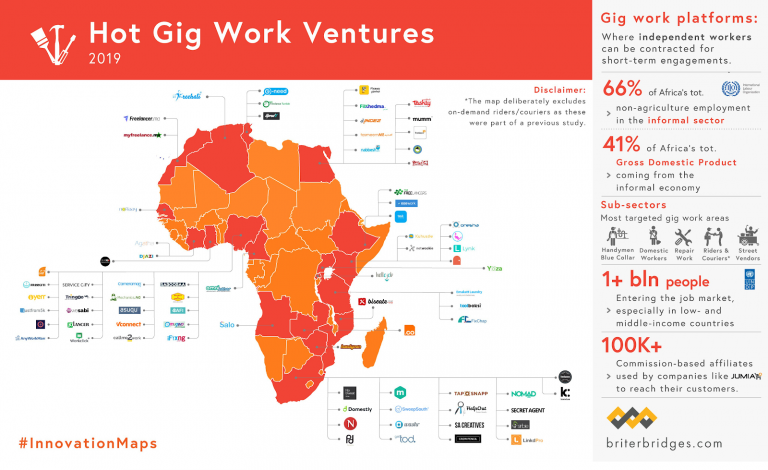
Morning all. Happy Tuesday. We’re talking ‘Pay-As-You-Chill’ today – disappointingly, not a flamboyant side hustle to earn money during COVID – find out more below.
In today’s edition:
🍔 Unilever ‘Future Foods’ Strategy
🥶 ‘Pay as You Chill’ for Zambian farmers
💸 Insuring the African Gig-economy

Coffee giants giving sustainability their best shot
Over 300,000 aluminium and plastic coffee pods are used in the UK annually, with 95% going to landfill, taking 500 years to biodegrade. Nestle and Jacob Douwe Egberts (JDE) (the biggest players in the UK coffee industry) have joined forces to create Podback, a not-for-profit organisation providing novel ways to recycle coffee pods:
- Collect+: Used pods can be dropped off at local Collect+ Yodel drop off points, which are taken to re-processing facilities and recycled into everyday products.
- Kerbside Collection: By working with local councils to ensure coffee pods are collected with regular household recycling.
- Handover at Home: Ongoing discussion with retailers to facilitate used coffee pod collection when groceries are delivered.
Why this is great: Successful collaborations rely on compelling business value gained when shared interests are met. With Podback research revealing a third of consumers were unaware coffee pods could be recycled, but 90% stating they would like to – Podback represents a quick win for an industry littered with sustainability pledges.
Fiat invest in a smart charging service
The premium cost of EV’s is a barrier to adoption for half of UK consumers. Fiat’s partnership with energy platform Kaluza is an opportunity to reduce charging costs, and total cost of EV ownership, with a range of cheaper EV charging services. The partnership’s first step is a smart charging service leveraging live data from the local grid operators, so car charging times can be shifted to when energy is cheapest. Fiat believes the service will enable drivers to reduce bills, lower carbon emissions and provide a personalised charging experience.

Unilever tackling a food system that is too unbalanced, too wasteful and too vulnerable
As one of the largest food manufacturers in the world, Unilever recognises its role in shaping a global food system that is fair for everyone. They unveiled their new ‘Future Foods’ strategy this week which included commitments to:
- Sell €1 billion in plant-based meat and dairy alternatives annually within five to seven years.
- Halve food waste in our direct operations from factory to shelf by 2025.
- Double the number of products that deliver positive nutrition by 2025 and lower calories, salt and sugar across all products.
Key here is making plant based foods accessible, affordable and appetising. Their food innovation centre ‘The Hive’ will play a crucial role in research into meat alternatives, efficient crops and sustainable packaging. A savvy move – 92% of plant-based meals in the UK are consumed by 22 million ‘flexitarians’ with a predicted annual growth rate of 15.8 per cent over the next 5 years.
🤖 Future of Tech (1-minute read)
‘Pay as you Chill’ – Ensuring Zambian food security
2 billion people globally are smallholder’s farmers with plots of less than 5 hectares, who face capital limitations and considerable distances to market. Post-harvest losses due to inadequate cold storage is a key driver in food insecurity and loss of income. Most smallholders lack the capital to invest and run refrigeration. To tackle this Frontier Technologies are trialing ‘pay-as-you-go’ cold storage units in Zambia. Smallholders make small periodic payments, in exchange for extended shelf-life of produce, reduced losses and increased sales. Hubs also act as distribution centers with buyers purchasing fresh produce direct-from-hub. Better yet, savings made by smallholders will, in theory, pass down to consumers – improving food security for rural communities.
Tree Shaped Urban Farming
The World Health Organisation (WHO) estimates that half the world’s population will be living in water-stressed areas by 2025. To curb the water-guzzling processes of modern agriculture Framlab has developed Glasir, a community-based system for urban farming. The space-saving design, created in likeness of a tree, can be installed in the densest urban areas. Production is optimised using smart technology sensors to track sunlight and temperature, while a rainwater collection system provides irrigation.
Fresh food for those in need: Glasir has been deployed to the most deprived areas of Brooklyn, New York – providing residents living in a food desert affordable, locally-grown produce to boost the nutritional, societal and economic profile of the area.


Insuring the Gig Economy
The problem: The ‘gig economy’ – flexible freelancing through online platforms, is increasingly part of the lived reality of Young Africans. In Kenya gig work accounts for nearly 84% of the working population (Vs 9.6% of the UK). Once a promising feature of the Kenyan economy, the pandemic has underscored the vulnerability of gig work with employment dropping up to 90% since COVID restrictions began. In the absence of a steady salary and other employer benefits (pensions, insurance, paid leave), financial insecurity is a crippling reality. Here are a number of suggestions to combat these challenges:
1) Tailor Microinsurance Offerings:
Gig workers require insurance that is on demand and can be flexible based on availability of gig work (See Gigacover). Insurtech that is digitally delivered and utilises technology to improve the speed of processing applications and claims (whilst bypassing brokers to eliminate extra cost), is crucial in driving affordability.
2) Digital Gig Platforms:
Need to consider how to contribute towards portable benefits in their offer to potential employees, (setting aside a portion of revenues). As competition for labor between Gig platforms grows this will be a key differentiator. If they don’t take the lead, governments may force them to adapt more severely later on.
3) Favourable Government Regulation:
African labor-market regulators can play a significant role in incentivizing progress by designing policies that encourage digital platforms to offer benefits (See Malaysian Reforms)

Little Bytes
Quote: “Technology is now all-consuming in our lives and drives so many positives, but I think there is work to do to ensure we align it with societal norms for what we should and shouldn’t be doing.” James Hodge, CTO, Splunk
Stat: 7 in 10 Brits would like air pollution information in daily weather reports
Watch: 3D printed, plant based meat that has fat, blood and muscle
🗞 In other news…
- Blue whales reappear in South Atlantic Ocean after decades-long absence
- UK to ban sales of diesel and petrol cars from 2030
- 1% of global population cause 50% of aviation industry’s carbon pollution
- The fastest 3D construction printer
- John Legend and Natalie Portman invest in startup making animal-free leather




